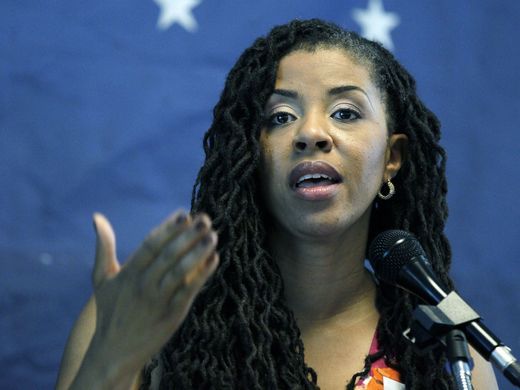These leaders — Black, Latina, Asian, Arab, Native American — in varied fields, broke both gender and racial barriers as they made history.
By Editors, USA TODAY, March 4, 2017 —
These women of color have made major impacts for both women and civil rights. Here is a by-no-means-comprehensive primer recognizing 36 women of color, past and present:
Peggy Alexander and Diane Nash
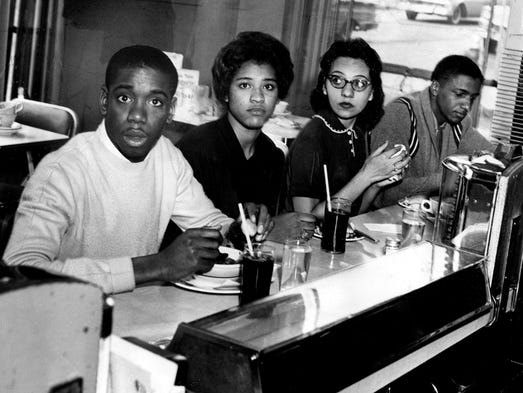
Peggy Alexnder and Diane Nash (Gerald Holly, The Tennessean)
Peggy Alexander and Diane Nash, pictured in the middle in the photo above, participated at lunch counter sit-ins during the 1960s Civil Rights Movement and were some of the first African Americans served lunch at a previously all-white counter, along with Matthew Walker and Stanley Hemphill.
Maya Angelou

Maya Angelou (Robert Deutsch, USA Today)
Maya Angelou was a Pulitzer prize-nominated poet and civil rights activist. Her first autobiography I Know Why the Caged Bird Sings received critical acclaim for its depiction of racism and sexual assault. A leader in black feminism, Angelou worked with Martin Luther King, Jr. and Malcolm X during the 1960s Civil Rights Movement.
Ella Baker
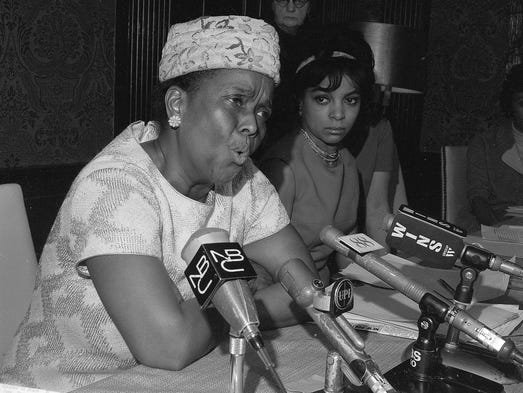
Ella Baker (Jack Harris, AP)
Ella Baker was a civil rights activist who founded the Student Nonviolent Coordinating Committee, a prominent organization in the 1960s Civil Rights Movement that united its young leaders. Baker worked with other leaders, such as Martin Luther King, Jr. and Thurgood Marshall.
Monifa Bandele
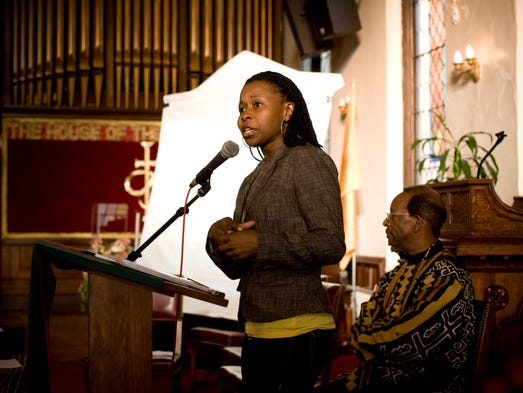
Monifa Bandele (Brian Harkin for USA TODAY)
Monifa Bandele works as an advocate for food justice at MomsRising, a grassroots organization aimed at empowering mothers politically and educating people on issues that women and mothers face.
‘The future is female’: Young feminists you should be following on Twitter
Grace Lee Boggs
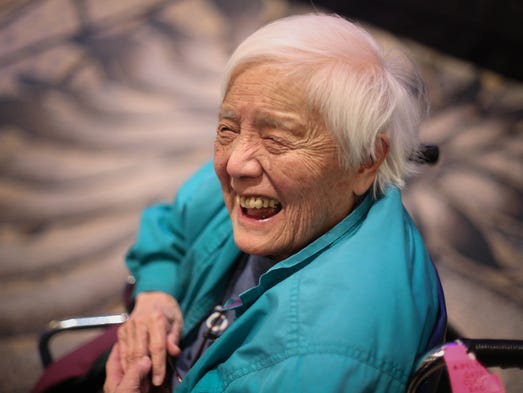
Grace Lee Boggs (Ryan Garza, Detroit Free Press)
Grace Lee Boggs, the daughter of Chinese immigrants, was a prominent writer and activist who worked closely with black Marxist and black power leaders like Malcolm X and her husband James Boggs during the 1960s Civil Rights Movement.
Charlotte Hawkins Brown
Charlotte Hawkins Brown was born next door to a plantation in Henderson, N.C., but moved to Cambridge, Mass., as a young girl. Her mother made sure that Brown received a good education, and a chance encounter with Alice Freeman Palmer, president of Wellesley College, resulted in her having an influential mentor. Brown eventually returned to North Carolina to open the innovative Palmer Memorial Institute, a prep school for African-American children. More than 1,000 students graduated from the Institute in Brown’s 50-year presidency. She also spoke out against Jim Crow laws.
Melanie Campbell
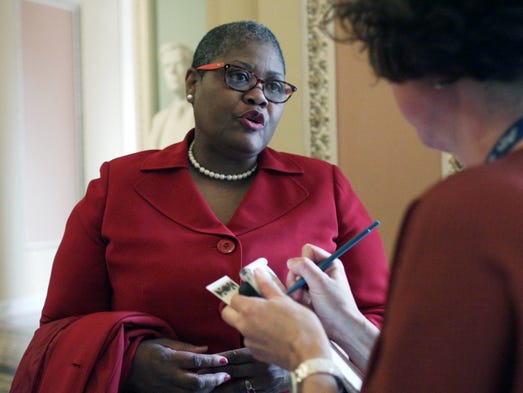
Melanie Campbell (Lauren Victoria Burke, AP)
Melanie Campbell is the president and CEO of the National Coalition on Black Civic Participation, which seeks to increase black voter participation.
Shirley Chisholm

Shirley Chisholm (AP)
Shirley Chisholm was the first black woman elected to U.S. Congress in 1968, and later became the first black candidate for a major party’s nomination for president as a Democrat.
Laverne Cox
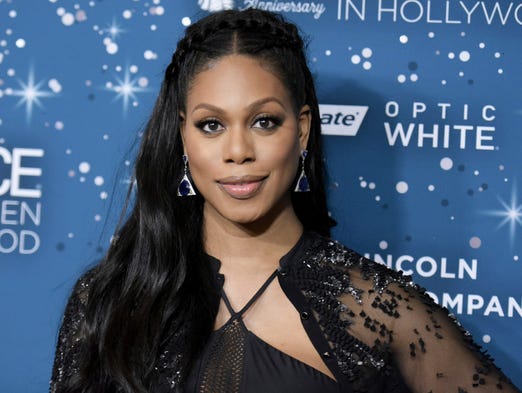
LaVerne Cox (Richard Shotwell/Invision/AP
Laverne Cox, star of Orange Is The New Black, became the first transgender actress to play a transgender network-TV series regular on CBS’ Doubt. “I think that talking about diversity, talking about race, talking about gender is important,” she said.
Angela Davis
Born in Birmingham, Ala., Angela Davis rose to prominence during the 1960s Civil Rights Movement due to her involvement with the Communist party. She was targeted by the FBI, making its 10 Most Wanted List, and later imprisoned but then acquitted on murder and kidnapping charges in association with a courtroom attack during the trial of the Soledad Brothers, three African-American inmates charged with the murder of a white prison guard. She has been a professor and author and today focuses on battling the “Prison Industrial Complex” in the U.S. as well as the role of black women and the rise of intersectionality in feminism.
Activist Angela Davis attended the Women’s March in D.C., and she urged protesters to keep fighting for vulnerable people. Video provided by Newsy Newslook
Ava DuVernay
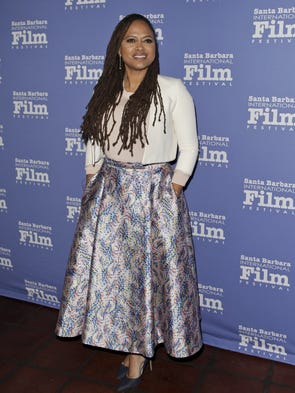
Ava DuVarnay (Tibrina Hobson, WireImage)
Ava DuVernay was the first black woman nominated for a Golden Globe for best director for her movie Selma. Her documentary 13th was nominated for an Oscar this year. She’s also the first woman of color to direct a live-action film with a budget exceeding $100 million (A Wrinkle In Time).
Alicia Garza

Alicia Garza (Mike Coppola, Getty Images for Busboys and Poets)
Alicia Garza, along with Opal Tometi and Patrisse Cullors, co-founded the Black Lives Matter movement in 2013 after the acquittal of George Zimmerman in the Trayvon Martin murder trial.
Roxane Gay

Roxane Gay (Jay Grabiec/USA TODAY)
Roxane Gay is a writer whose collection of essays in Bad Feminist explores what the word “feminist” has come to mean today and how attitudes around the term have shaped women’s progress.
LaDonna Harris

LaDonna Harris (Shizuo Kambayashi, Associated Press)
LaDonna Harris is a Native American activist and member of the Comanche tribe. She is the founder and president of Americans for Indian Opportunity and served on the National Indian Opportunities Council as President Lyndon B. Johnson’s appointee. Harris was also an honorary co-chair for the Women’s March on Washington.
Dorothy Irene Height

Dorothy Height (David Kohl, AP)
Dorothy Height served as president of the National Council of Negro Women for 40 years. Awarded the Presidential Medal of Freedom in 1994, Height worked as an educator and activist seeking to increase political rights for African American women.
Dolores Huerta
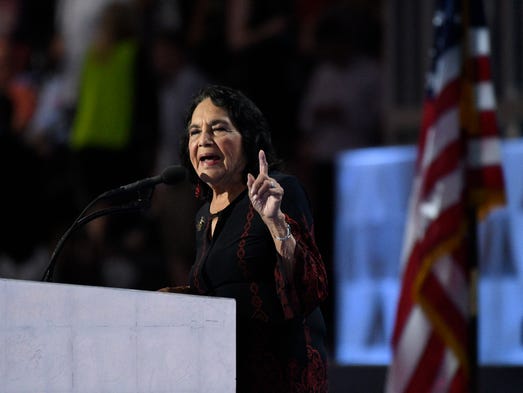
Delores Huerta (Robert Hanashiro, USA TODAY)
Dolores Huerta is a labor activist and co-founder of the National Farmworkers Association, now the United Farm Workers. She has advocated for immigrant and Latino rights in the United States. Huerta also served as an honorary co-chair for the Women’s March on Washington.
Carol Jenkins
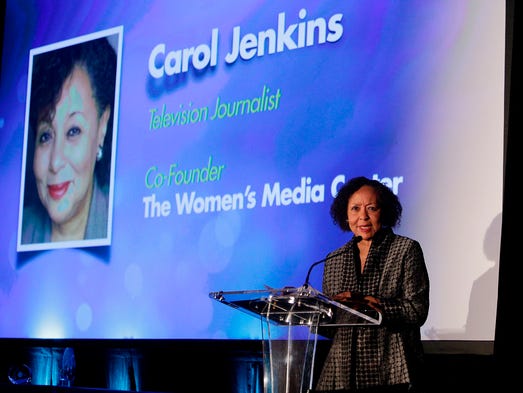
Carol Jenkins (Lars Niki, Getty Images for Athena Film Festival)
Carol Jenkins is an Emmy-award winning TV anchor and journalist. She was a co-host of Positively Black on NBC in New York, one of the first shows dedicated to predominately black issues.5
Avis Jones-DeWeever
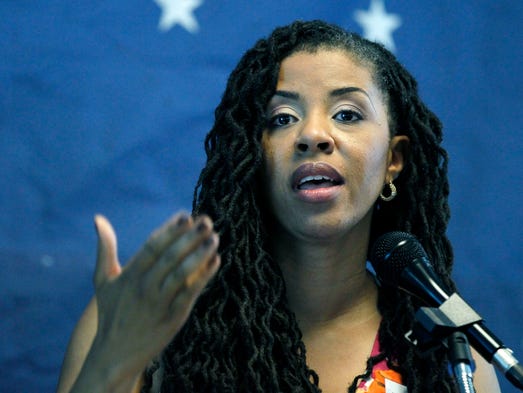
Avis Jones-DeWeeve (Rogelio V. Solis, AP)
Avis Jones-DeWeeve is the former executive director of the National Council of Negro Women and works today as a female empowerment and workplace diversity consultant.
Barbara Jordan

Barbara Jordan (Anne Ryan, USA TODAY)
Barbara Jordan was a prominent politician and civil rights leader who was the first black woman from the South elected to the U.S. House of Representatives. Barbara Jordan incisiveness as a member of the House Judiciary Committee during the Richard Nixon impeachment hearings gained her national attention. In 1976 she became the first African-American woman to give the keynote speech at a Democratic National Convention. She was inducted into the National Women’s Hall of Fame in 1990 and received a Presidential Medal of Freedom in 1994.
Coretta Scott King

Caretta Scott King ( John Bazemore, Associated Press)
Coretta Scott King was a leader in the 1960s Civil Rights Movement and wife of Dr. Martin Luther King Jr. After her husband’s death, she continued his work advocating for African Americans’ rights and became a leader in the women’s rights, LGBT rights and anti-apartheid movements. In her memoir, she reiterates how black women, pivotal to the Civil Rights Movement, were too often denied top leadership positions, and how she encountered resistance from some of her husband’s compatriots.
Winona LaDuke

Winona LaDuke (Stephen Maturen, Getty Images)
Winona LaDuke is a Native American and environmental activist. She was Ralph Nader’s Green Party running mate, a vice presidential nominee, in 1996 and 2000. An economist, she has advocated for tribal land protection and sustainable economic development.
Audre Lorde

Audre Lorde (Salimah Ali, POV)
Audre Lorde was a self-proclaimed black lesbian feminist warrior poet. She wrote 12 poetry collections and five books of prose, including A Burst of Light, which won a National Book Award.
Tamika Mallory
Tamika Mallory is an African-American civil rights activist, former executive director of the National Action Network and co-chair of the Women’s March on Washington.
Wilma Mankiller

Wilma Mankiller (Tom Gilbert, Tulsa World via Associated Press)
Wilma Mankiller was the first woman to serve as chief of the Cherokee Nation and she fought for the rights of women and Native Americans. She led Cherokee Nation from 1985 to 1995 and received the Presidential Medal of Freedom from Bill Clinton in 1998. “She understood that great leadership begins with the women — that’s our long, cultural tradition,” said Chad Smith, who was chief when she died in 2010. “If I had one word to frame her, it would be patriot. A patriot is one who gives her all for her people.” Gloria Steinem spoke at her memorial service.
Janet Mock

Janet Mock (Chance Yeh, WireImage)
Janet Mock is a transgender activist and writer whose memoir Redefining Realness: My Path to Womanhood, Identity, Love & So Much More made the New York Times’ bestseller list.
Carmen Perez
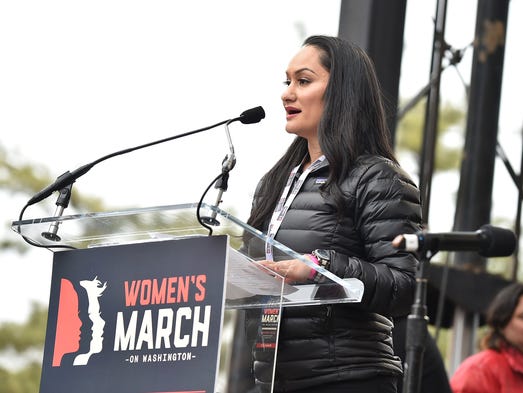
Carmen Perez (Theo Wargo, Getty Images)
Carmen Perez is a civil rights activist focusing on racial inequalities in criminal justice, and she served as a national co-chair for the Women’s March on Washington. “I want young girls to know they are powerful. They are necessary and they can become the leaders of the next generation,” she said.
Ersa Poston

Ersa Poston ( Ed Ford, Associated apress)
Ersa Poston served as president of the New York Civil Service Commission starting in 1967 and in 1977 became the first black woman appointed to the federal Civil Service Commission.
Sylvia Rivera
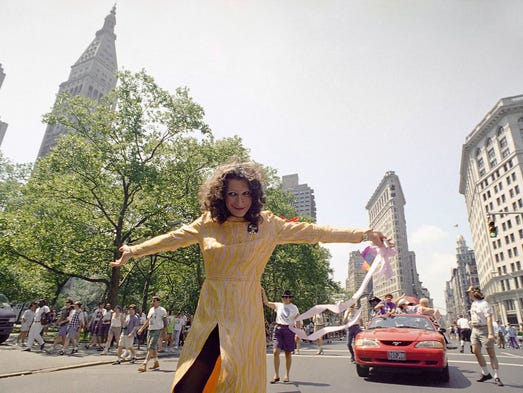
Sylvia Rivera (Justin Sutcliffe, AP)
Sylvia Rivera was one of the instigators of the Stonewall uprising and a founding member of the Gay Liberation Front. A Puerto Rican transgender woman, she fought for the protection and safety of all trans people.
Audrey Rowe
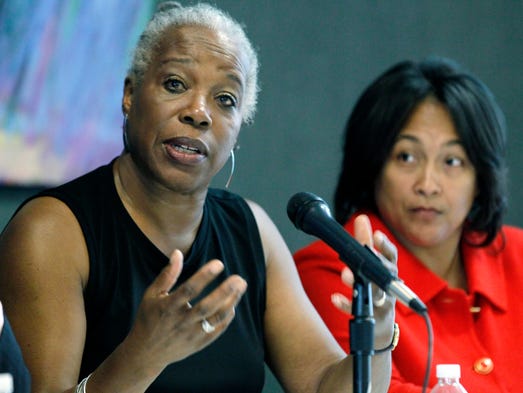
Audrey Rowe (Rogelio V. Solis, AP)
Audrey Rowe is the administrator for the Food and Nutrition Service at the U.S. Department of Agriculture, where she works to provide access to healthy and affordable food for low-income families.
Linda Sarsour
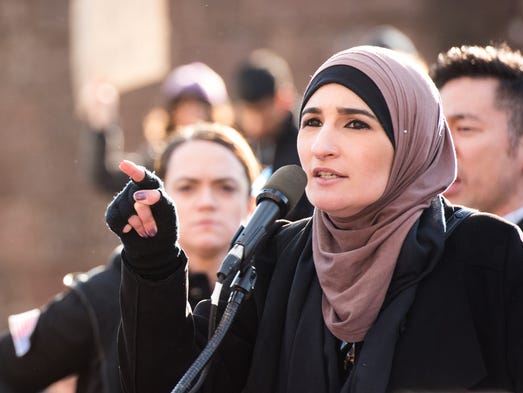
Linda Sarsour (Noam Galai, WireImage)
Linda Sarsour served as a national co-chair for the Women’s March on Washington and executive director of the Arab American Association of New York. She is a Palestinian American who works as an activist for Muslim American rights.
Madonna Thunder Hawk
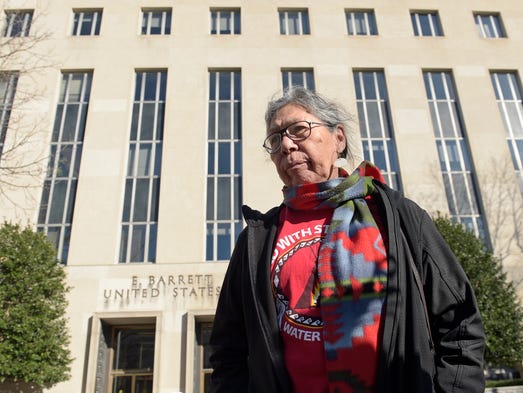
Madonna Thunderhawk (Susan Walsh, AP)
Madonna Thunder Hawk is a Native American activist and leader in the American Indian movement, which works toward Native American rights and sovereignty. A member of the Oohenumpa band of the Cheyenne River Sioux Tribe, she is “grandmother to a generation of Native American activists,” according to the website for the advocacy group the Lakota People’s Law Project, where she is principal organizer and Tribal Liaison.
Harriet Tubman

Harriet Tubman ( H.B. Lindsley, Library of Congress via AP)
Born into slavery, Harriet Tubman escaped to Philadelphia in 1849 only to return to the South to help hundreds of slaves reach freedom through a network of safe houses known as the Underground Railroad. Tubman also served as a spy for the Union Army during the Civil War and will soon replace Andrew Johnson on the $20 bill.
Nanye-hi or Nancy Ward
Nanye-hi was born into a powerful Cherokee Wolf clan in what is now Tennessee. Despite a childhood filled with violent encounters with both Europeans and other tribes, including battles she joined alongside her husband — even rallying her tribe to victory after he was shot and killed — Nanye-hi believed all people should live together in peace. At a young age she was given the name Ghighau, or Beloved Woman, by the Cherokees, and went on to have a powerful and influential position in treaty talks. She advocated for peace until her death.
Winnie Wong
Winnie Wong is a co-founder of the People for Bernie and creator of the #FeelTheBern hashtag. She was also an organizer for the Occupy Wall Street movement and Women’s March on Washington.
Addie Wyatt

Addie Wyatt ( Nam Y. Huh, Associated Press)
Addie Wyatt was the first black woman elected to serve as vice president of a major labor union in the meatpacking industry. In the ’60s she marched with Martin Luther King on Washington, Selma and elsewhere. In 1974, she was one of the founders of the Coalition of Labor Union Women (CLUW), the country’s only national organization for union women. She is also a founding member of the National Organization of Women (NOW).

